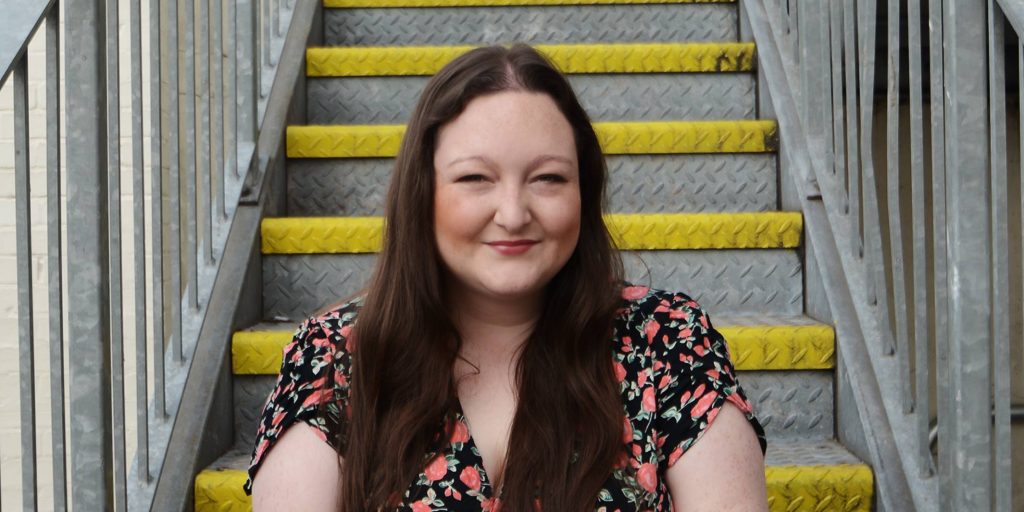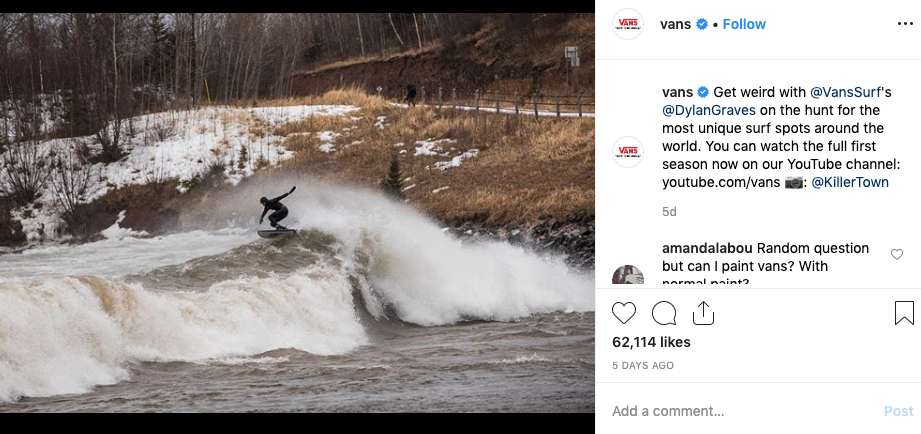In this interview I caught up with Found’s amazing Social Account Manager, Ruth O’Brien. Hailing from Glasgow, Ruth has had a fascinating journey so far. Absolutely crazy about all things social, she has a keen eye on the latest developments across the industry at the moment…
What was your first job?
My first ever job was a weekend job at Somerfield when I was still at school. I worked on the checkouts and somehow ended up being promoted to supervisor fairly quickly. I was studying computer science & programming at Uni but wasn’t really enjoying it, so one of the assistant managers recommended I switch to business instead so I could get into management.

After Uni I worked at a parenting website start-up which helped me get stuck in with all things digital marketing, including social media & influencers.
Why did you get into marketing?
When I switched to studying business at University, I found I enjoyed the marketing classes the most. One of the creative directors from Leith Agency came in and gave a guest lecture about what it was like to work at an agency and I pretty much decided that’s what I wanted to do. I ended up switching my degree to a joint honours in business and marketing.
What was the first social network you used?
I forget what came first, but I was heavy into MSN Messenger, Myspace, Bebo and LiveJournal when I was in high school.
If you could work with any brand in the industry at the moment, who would it be and why?
Vans – I love how they focus and engage with different subcultures in a way that still feels authentic. They way that they connect social with in-store and live activations really works too.

What is the most interesting thing about your job?
It’s bit of a cliché but I like that no day is ever really the same. The nature of social means being reactive and trying out new things. Platforms are also constantly releasing new features and I enjoy thinking about new cool things our clients could do with them.
Which social network do you feel offers the most value for a brand?
There’s no “one size fits all” social channel, it really depends on the brand and where their audience lives. When it comes to paid social, I do find that Facebook’s targeting capabilities and variety of creative formats can mean that Facebook and Instagram often deliver the best results. But again it will depend on the brand, as well as the KPIs.

Credit: Tim Bennett
Which brands have got your attention in the social space at the moment?
I’m really liking Carlsberg’s current campaign where they have been promoting negative tweets to highlight their new recipe. The first time I saw one of the ads on Twitter I shared it with my friends as it was so funny. It’s a great example of transforming something negative into a powerful brand awareness campaign.
If you could change one thing about social, what would it be?
The constant abuse of hashtags, especially if it’s just one word like #fashion. That’s not how people search on social, and unless you sell to bots, it’s not going to get you attention from the right people. Stop using them unless they have a purpose, such as tagging together a campaign. It’s just wasted characters.

Credit: Jon Tyson
What do you feel 2019 has in store for social?
There’s been a lot of negativity surrounding privacy and regulation, largely driven by governments and the media. This has led to platforms implementing major changes to ensure user numbers don’t decline. The current trends appear to be moving users away from the traditional feed formats and into more private places such as Facebook groups and messenger platforms. This means that it will be increasingly difficult for brands to rely on native ways to use social to connect with customers and more emphasis will need to be on cut-through content and paid activity.
If you could give one piece of advice to brands that are considering social marketing – what would it be?
Stop treating organic and paid social separately and blaming algorithms when no-one engages with your content. If you are going to invest in content, you really also need to invest in getting it seen.


